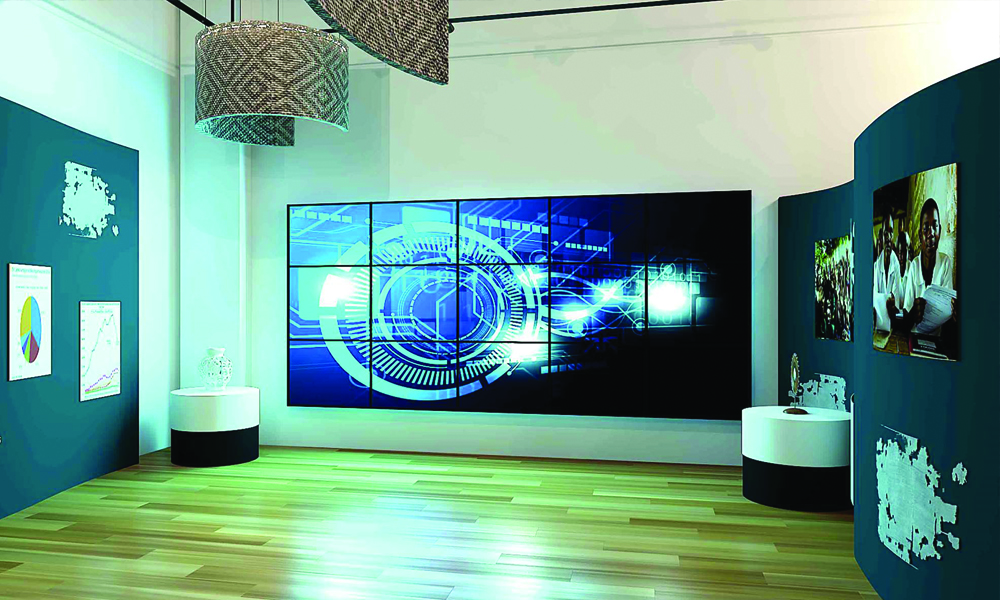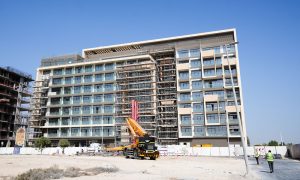Expo 2020 Dubai unveiled nine country pavilions designed by students around the world
Series of pavilions have been designed by students from each country to showcase the best their nations have to offer

Organisers of Expo 2020 Dubai have said that nine countries from around the world – Djibouti, Grenada, Malawi, Myanmar, Saint Kitts and Nevis, San Marino, Sri Lanka, Suriname and Zimbabwe – have unveiled their Expo 2020 Dubai pavilions, each designed by young and emerging talented students, in line with the event’s wider aim of engaging, involving and empowering the next generation.
In a statement, the organisers said that inspiring and empowering the youth as innovators and thought leaders of tomorrow is crucial to Expo 2020 and its legacy, with the Expo staging a host of initiatives involving young people before, during and after the six-month event.
Hind Al Boom, Manager, Director General Office, Expo 2020 Dubai, said: “The upcoming event is our chance to bring the world together in a spirit of hope and optimism for the future, and what could be more optimistic than spotlighting talented youth from around the world?”
She explained that teams of students from the nine countries had researched the history of their countries, the national priorities and development challenges in order to create their official pavilion designs, before working alongside Expo 2020 to bring them to life.
The San Marino pavilion, for example, is a futuristic laboratory, where visitors can actively take part in building the country’s future. With Malawi, visitors can experience the country through the inspiring story of a young child, she added, pointing out that each pavilion offers unique and impactful insights into the country’s culture and progress.
Djibouti’s shipping container-style pavilion is an example of this, positioning the country as a land of trade, tourism and technology. Meanwhile, the ‘spice island’ of Grenada will introduce its flourishing chocolate and nutmeg industries with an abstract nutmeg sculpture, organisers said.
Kerlyn Ariel Anne Frank, the winning student from Grenada, described the experience as “extremely fulfilling”.
“Now I can say that I have been part of putting Grenada’s culture, talent and potential out there for the world to see, showing that we are participants in the global economy,” she said.
A wide array of student disciplines – from design and art to economics, technology and sustainability – is reflected in the diverse pavilion designs and experiences, and cements Expo 2020 Dubai’s core vision of “Connecting Minds, Creating the Future”, the statement added.
A multi-disciplinary team from the University of Moratuwa – comprising communications students, product and fashion designers, as well as students of architecture and agriculture – collaboratively came up with the idea to represent Sri Lanka’s dynamism and adaptability through a sense of flowing water.
Jeevani Siriwardena, the Deputy Commissioner-General for Sri Lanka, and Director-General of the Sri Lanka Export Development Board, said: “Encouraging the youth to think out of the box and to reach out to communities with helping hands creates more empathetic and reflective individuals, and sets them on a course to be better and capable social-serving leaders in the future.”
Adopting the theme of “open for business”, the young designers of the Zimbabwe Pavilion said they are eyeing a brighter future – portraying their nation as an untapped jewel of Africa, which is rapidly diversifying into new areas of growth. Meanwhile the Myanmar Pavilion takes visitors on a quiet, spiritual journey that promotes a value-based lifestyle, stated Al Boom.
Nature, culture and history are at the heart of the multi-sensory Saint Kitts and Nevis Pavilion – designed by secondary school students – where visitors will be able to see, touch, taste, smell and hear the secrets of the islands, before “walking through water” at the colourful Suriname Pavilion which explores the country’s nature-based beauty and health products, she explained.
According to her, the Expo School Programme will provide unique learning opportunities to UAE school students via curriculum materials and visits to the Expo site.
The UAE’s 140,000 full-time university students are also invited to experience specially-curated tours, while Expo Live – Expo 2020’s global innovation and partnership programme – has provided 47 teams of UAE students with grants, exposure and support to help develop their creative solutions to pressing challenges, she concluded.























